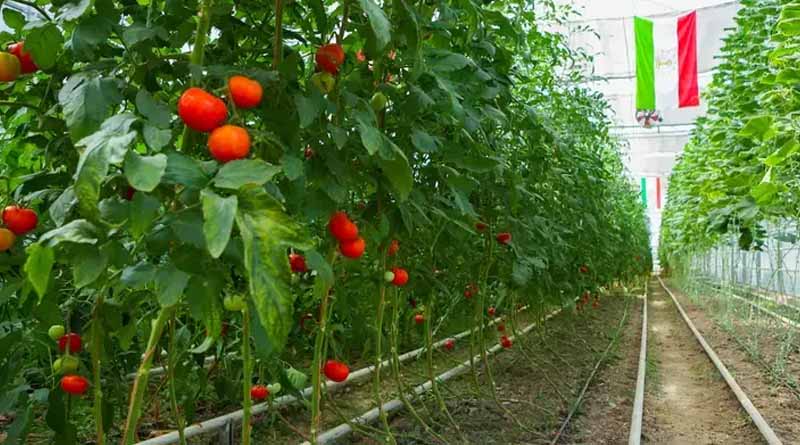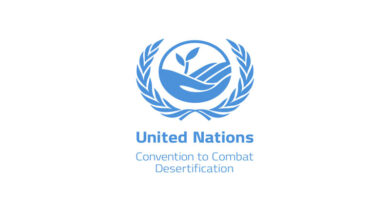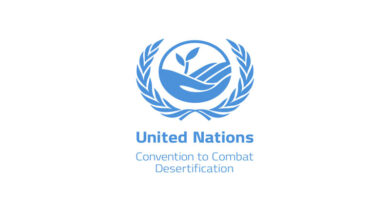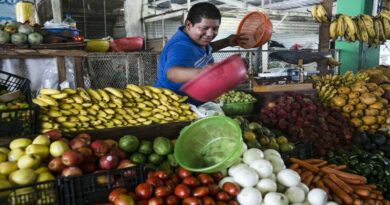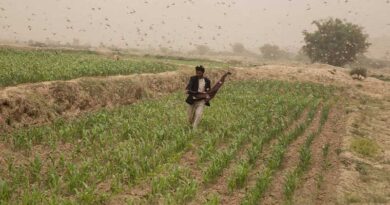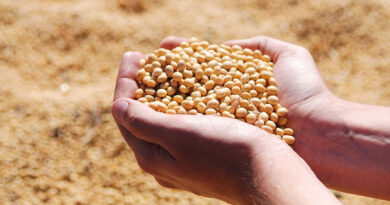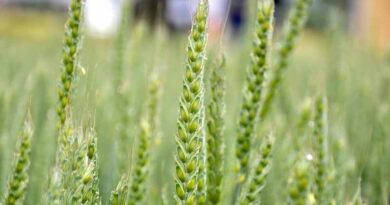In Central Asia, female leadership is key to climate and drought resilience
08 July 2023, Tajikistan: From potatoes grown in recycled sacks to “more crop per drop” fruit tree varieties, climate-smart and women-led agriculture initiatives became the center of discussions at a recent interregional conference convened by the United Nations Convention to Combat Desertification (UNCCD) in Dushanbe, Tajikistan.
Fertile land is a precious commodity in Tajikistan, where 90% of the country’s territory is covered by mountains and 60% of the population directly depend on agriculture for livelihood.
Agriculture is a major part of Tajikistan’s economy. Can you spot the colors of one of its most famous crops in the stripes of the national flag?
As heatwaves, droughts and other extreme climate events become more frequent and severe across the globe, regional cooperation and knowledge sharing are becoming a priority in building drought resilience and fighting land degradation.
In response to these growing challenges, representatives of Belarus, Georgia, Kazakhstan, Moldova, the Russian Federation, Tajikistan and Turkmenistan met in Dushanbe, Tajikistan from 1-2 July 2023 to discuss upscaling and coordinating legislative, educational, scientific and technical cooperation aimed at achieving Land Degradation Neutrality.
Water is so precious in Central Asia, some say it’s worth more than gold. Burrowing deep into the soil, this well in the Gissar Valley carries water that contains trace amounts of the precious metal
“Though we come from different climates and landscapes, we are united in the face of climate-induced drought and land degradation. Women who develop and test climate-smart and cost-effective solutions locally should be the ones spearheading regional and global efforts to grow and protect our food in the times of climactic stress,” participants stated.
Reflecting the theme of this year’s Desertification and Drought Day “Her Land. Her Rights”, discussions centered on the key role of civil society organizations, particularly those led by women, in harnessing donor financing and advancing legislative action in support of gender-responsive land restoration projects that provide sustainable rural livelihoods.
Apples are the most popular fruit worldwide, and so are new ways to grow them more efficiently
After attending a training series at the Youth Ecological Center in Dushanbe, Mavluda Akhmedova is using the technology of growing potatoes directly in recycled sacks on her homestead in the Dekhanabod village. This approach has proven particularly effective as more frequent and sudden heatwaves and droughts in Tajikistan raise the risk of harvest loss. Growing potatoes in sacks lets the farmers control the temperature and humidity better and is of particular use on small plots where growing space is at a premium.
Greenhouses at the Agricultural University in Dushanbe use the latest technology, encouraging the students to test new approaches to efficient and sustainable crop production
During a visit to an experimental farm in the Gissar District, participants learned how students from Agricultural University in Dushanbe test classroom knowledge to implement the “more crop per drop” approach on their 800 hectares under tillage, including a fruit orchard, a vineyard and pasture.
Nothing tastes better than bread fresh from the oven! Farm-to-table is the way of life at the experimental farm of the Agricultural University of Dushanbe
The university hopes that new investments and focus on research, smart tech and innovation will bring more female students to the classrooms and labs.
Using compact varieties of fruit trees combined with drip irrigation means less water, less labour and less land are needed to produce comparable crop yields
By the end of 2023, Tajikistan intends to complete the process of joining the Land Degradation Neutrality (LDN) Target-setting programme, bringing the number of countries who set voluntary LDN targets to 130, including all Central Asian nations.
Furthermore, participation in the World Bank’s RESILAND CA+ Initiative will allow Tajikistan to access the knowledge base of other engaged countries – Kazakhstan, Uzbekistan and Kyrgyzstan – and train forest management and rangelands biodiversity specialists. Women are expected to become the majority of RESILAND CA+ projects’ participants and beneficiaries.
Also Read: Syngenta India to train and certify 1000 spray men
(For Latest Agriculture News & Updates, follow Krishak Jagat on Google News)

